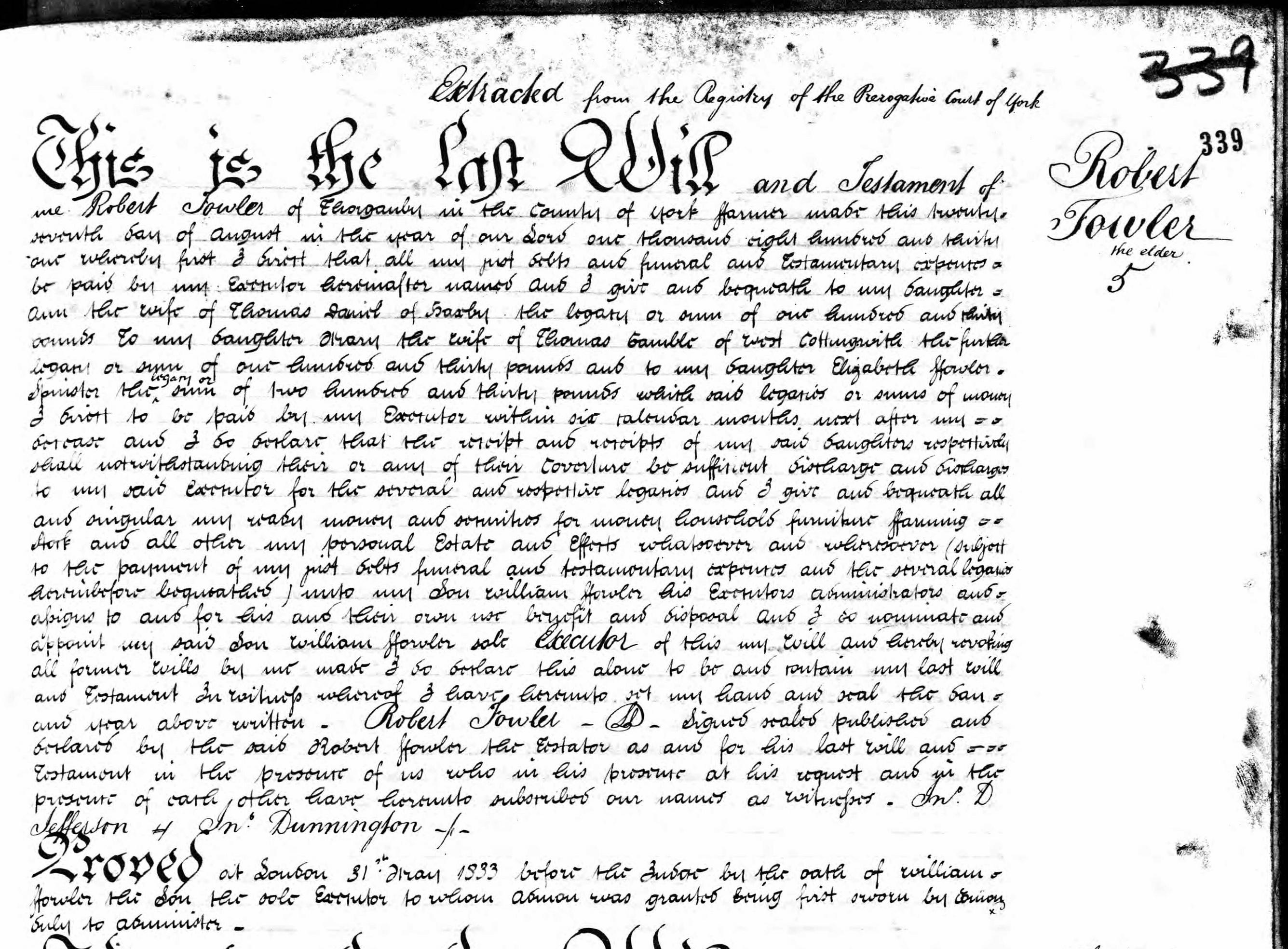The obvious thing to check is whether the other children had died prior to the will being drawn up.
Transcription
To help you in this case, I have transcribed the will below:
Extracted from the Registry of the Prerogative Court of York
This is the Last Will and Testament of me Robert Fowler of Thorganby in the county of York farmer made this twenty seventh day of August in the year of our Lord one thousand eight hundred and thirty one whereby first I exort that all my just debts and funeral and testamentary expenses be paid by my executor hereinafter named and I give and bequeath to my daughter Ann the wife of Thomas Daniel of Haxby the legacy or sum of one hundred and thirty pounds to my daughter Mary the wife of Thomas Gamble of West Cottingwith the further legacy or sum of one hundred and thirty pounds and to my daughter Elizabeth Fowler spinster the legacy or sum of two hundred and thirty pounds which said legacies or sums of money I exort to be paid by my executor within six calendar months next after my decease and I do declare that the receipt and receipts of my said daughters respectively shall notwithstanding their or any of their coverture be sufficient discharge and discharges to my said executor for the several and respective legacies and I give and bequeath all and singular my ready money and securities for money household furniture farming stock and all other my personal estate and effects whatsoever and wheresoever (subject to the payment of my just debts funeral and testamentary expenses and the several legacies hereintofore bequeathed) unto my son William Fowler his executors administrators and assigns to and for his and their own use benefit and disposal and I do nominate and appoint my son William Fowler sole executor of this my will and hereby revoking all former wills by me made I do declare this alone to be and contain my last will and testament In witness thereof I have hereunto set my hand and seal the day and year above written - Robert Fowler - signed sealed published and declared by that said Robert Fowler the Estator as and for his last will and testament in the presence of us who in his presence at his request and in the presence of each other have hereunto subscribed our names as witnesses Jn D Jefferson Jn Dunnington
(Note that this was transcribed an a small screen, so transcription errors and typos are possible)
As you can see, Robert Fowler (the elder) left cash legacies to his three daughters Ann, Mary, and Elizabeth, with the remainder of his estate being left to his son, also named Robert.
I would therefore check the local parish records to see whether the other named children, Thomas, William, and Jane had already died before the will was drawn up in 1831 (this would certainly not be unusual at that date).
Note that land holdings generally passed by common law to the eldest son at that date, and so were often omitted from wills.
Online Resources
There are several good tutorials available online which will help you learn to read old handwriting. The Palaeography Tutorial from the National Archives is one excellent example, but an online search for reading old handwriting will reveal many others.
However, even after you have mastered reading old handwriting, some of the terminology in old wills can be challenging. Fortunately, again, there are several good guides available online, including (for example) the guide to Probate Records from the Society of Genealogists. Again, an online search for probate records genealogy will give you other options.
